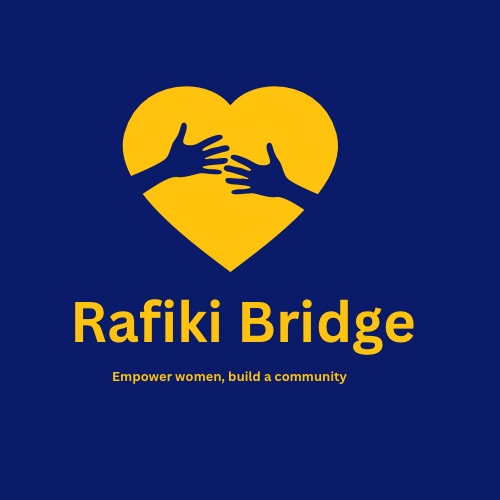RISING UNREST IN DRC: Protest, Regional Impact, and Humanitarian Concerns
- Rafiki Bridge

- Feb 10
- 3 min read
Updated: Feb 28

The Democratic Republic of the Congo (DRC) currently faces a turbulent period marked by widespread unrest. Protests have erupted, especially in the capital, Kinshasa, as citizens express outrage over increasing violence in the eastern regions. Demonstrators have targeted foreign embassies, demanding more substantial international intervention in the ongoing conflict. The situation escalated dramatically with the M23 rebel group's recent takeover of the strategic city of Goma and the mass prison break freeing over 4,000 inmates.
Conflict Background
The DRC is rich in mineral resources like gold, tin, and coltan. This wealth has drawn the attention of various armed groups and foreign investors, sparking decades of conflict as factions vie for control. For instance, M23, which emerged in 2012, briefly occupied Goma before being expelled in 2013. The group resurfaced in 2021, claiming to protect Tutsi populations facing discrimination. However, the Kinshasa government views M23 as a tool for foreign powers attempting to exploit the DRC's resources.
The interweaving of local grievances and external pressures makes it difficult to pinpoint responsibilities within the conflict. As a result, the DRC experiences instability that directly impacts the lives of its citizens.

Rwanda’s Alleged Involvement
Rwanda's role in the conflict has been heavily criticized. The DRC has accused Rwanda of actively supporting and arming M23, a charge that Rwanda strongly refutes. This tension arises from the Rwandan genocide in 1994, which caused many Hutu extremists to seek refuge in the DRC’s eastern regions.
Rwanda claims it is acting to eliminate groups like the FDLR, a Hutu militia threatening its national security. Meanwhile, DRC officials argue that Rwanda is using security concerns as a cover for resource exploitation, further complicating relations and increasing the risk of a broader regional conflict.
Risk of Escalation
The situation intensified when the DRC severed diplomatic ties with Rwanda on January 26, 2023. This pivotal decision has the potential to destabilize both the DRC and its neighboring countries. The United Nations has warned that if violence persists, it could lead to an extensive refugee crisis impacting nations like Uganda and Tanzania.
The humanitarian consequences are dire. Organizations like UNICEF note that over 5.5 million people are already displaced within the DRC, and the potential for famine looms large due to disrupted agricultural activities. As civilians suffer in the midst of geopolitical interests, the essential needs for food, shelter, and medical care often go unmet, highlighting the urgent need for systemic change.
International Response and Challenges
Despite the gravity of the situation, the international response remains lukewarm. Sanctions have targeted M23 leaders, but effective intervention has been scarce. Humanitarian organizations are urging the global community to step up, emphasizing the need for mediation in the conflict and greater support for those affected.
The geopolitical interests of powerful nations often overshadow humanitarian considerations, leaving vulnerable populations at risk. A focused effort is essential that prioritizes the safety and well-being of civilians while navigating the complex dynamics between involved nations.
An international coalition that goes beyond mere rhetoric and sanctions is critical. This coalition should facilitate dialogue and cooperation among the parties involved in the conflict in the DRC.
Humanitarian Concerns
The escalating violence has worsened the humanitarian crisis within the DRC. Currently, millions are displaced, with many forced into makeshift camps lacking essential provisions like food, clean water, and medical care. Women and children face heightened risks of sexual violence and exploitation, further complicating an already dire situation.
Humanitarian groups are also sounding alarms about the looming threat of famine. As conflict disrupts agriculture, communities struggle to provide for themselves, while existing healthcare systems can barely handle the current population's needs. Disease outbreaks are becoming more likely, with overcrowded camps lacking proper sanitation and medical resources. Both the DRC government and the international community must prioritize addressing these humanitarian concerns. This includes improved aid distribution, ensuring that shelters and medical assistance reach those in greatest need, and creating sustainable practices to protect vulnerable groups.

Moving Forward
The unrest in the DRC is a complex issue characterized by deep historical grievances, regional tensions, and severe humanitarian consequences. Protests in Kinshasa emphasize the people's frustrations and their demand for greater accountability from their leaders and the international community.
As the risk of broader conflict remains high, so does the urgency for immediate action. A concerted effort to mediate the conflict and provide relief for those affected is essential. While the path to peace is fraught with difficulties, collaborative efforts can lead to a brighter future for the DRC. By understanding the underlying issues and taking decisive collective action, the international community can play a pivotal role in addressing the unrest in the DRC and ensure that the voices of those affected are no longer overlooked.
_edited.jpg)


Comentarios